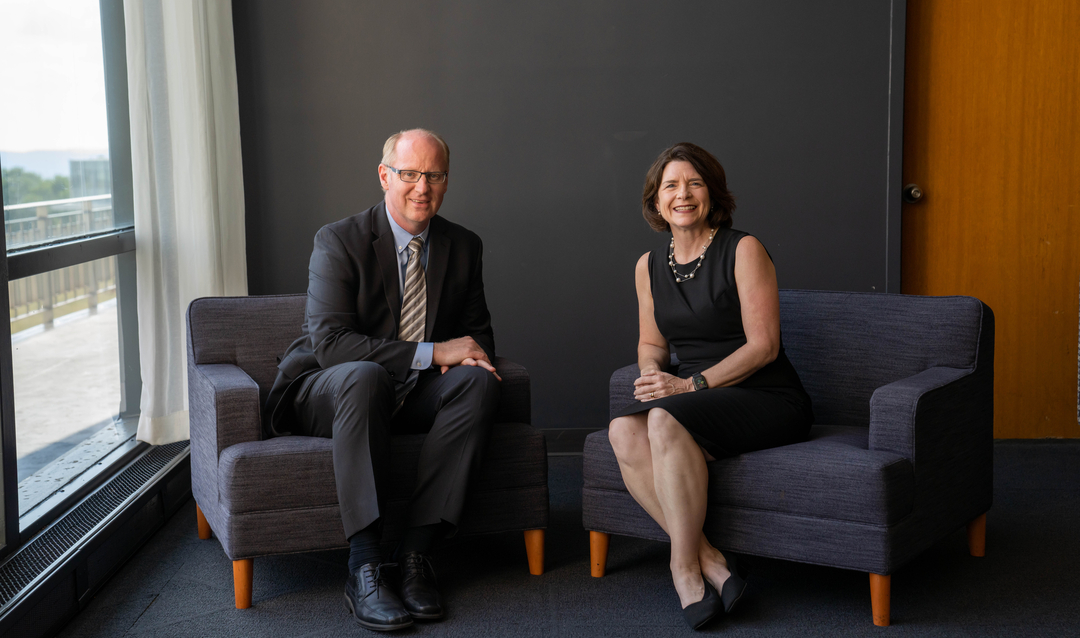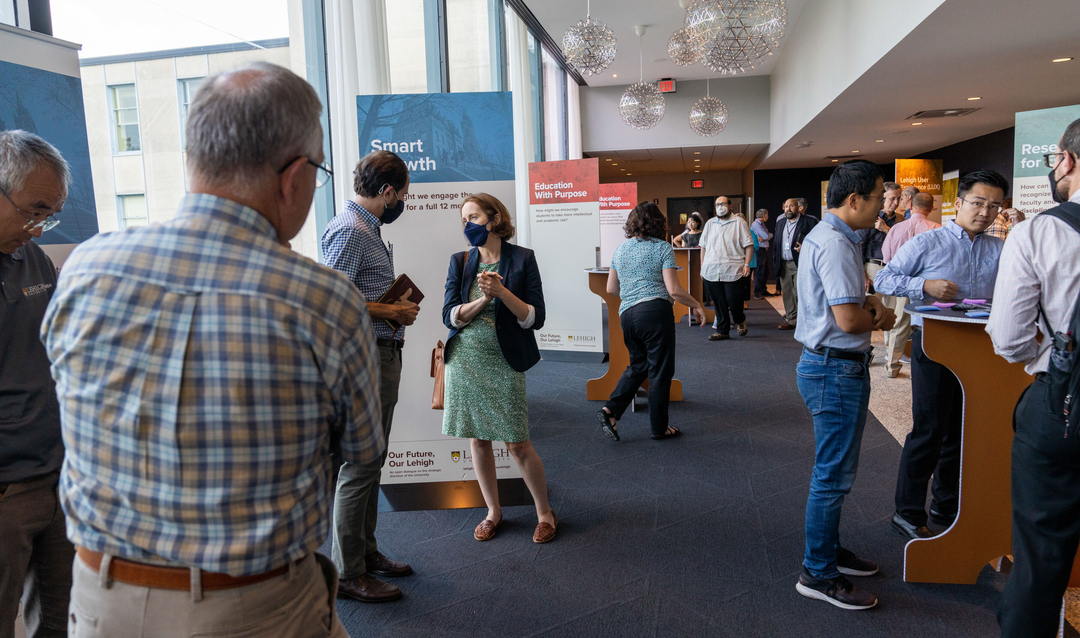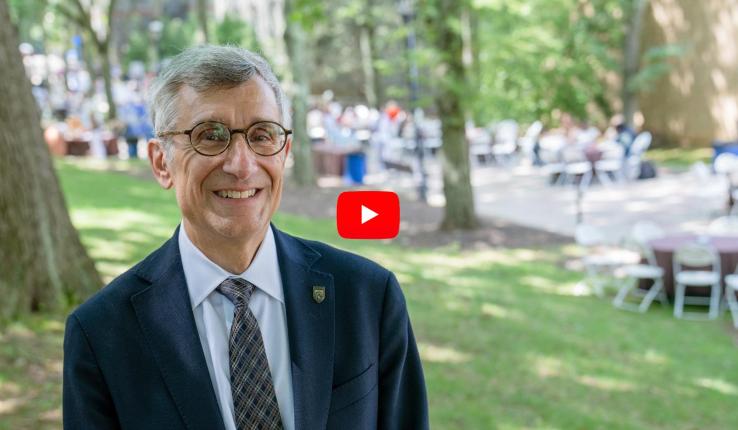“Our Lehigh, Our Future—an open dialogue on the strategic direction of the university” is now under way, with members of the Lehigh community sharing their ideas with university leaders and each other, and working groups helping to flush out and refine ideas. The campus community is invited to participate through in-person and remote events as well as through an on-line Idea Portal.
The strategic planning effort is being led by Provost Nathan Urban and Vice President of Strategic Planning and Initiatives Chris Cook. Here they talk about the themes, the process, generating ideas and getting involved.
Four themes emerged to guide the Strategic Planning process: Education with Purpose, Lehigh User Experience, Research with Impact and Smart Growth. Why those themes?
Urban: We got to those themes through an interesting process. We started off with a pretty blank slate, asking different groups of people–mostly deans, people in leadership roles across the university–what are your big ideas, your thoughts about the future? There were 300-plus different ideas that emerged through that process. We then looked at that set of ideas and said, what are some of the themes that seem to be emerging? Some of those ideas were problems to be solved. Some were opportunities. Some were ways in which people thought we could differentiate Lehigh from similar universities across the country or world. …
We had a set of conversations over the course of the summer with a number of different groups, including some groups of faculty recommended by the Faculty Senate… as we tried to gauge people's level of enthusiasm. From that feedback, we refined the thematic areas and the questions that we're asking around these different thematic areas.
Cook: It wasn't just that these themes were emerging, it was that there was really shared and consistent interest in these particular themes that those 95 people [at meetings over the summer] really thought were the important things to talk about.
The Strategic Planning Forums and the Idea Portal have generated myriad ideas as Lehigh charts its course for the future. Have any particular ideas risen to the top of the list?
Urban: We're still in the stage where new ideas are emerging and being refined. So I wouldn't say we're there yet in terms of identifying particular ideas for initiatives, things that we must do. There certainly is a lot of interest around Mountaintop and what it is that we should be doing there. There's a lot of interest in different aspects of the Lehigh user experience. How can we improve the way in which faculty, staff, students, members of the community work with Lehigh, making that more efficient, more effective, more transparent?
Cook: The process is very early. We want this to be a rich discussion throughout the community. Those big ideas will continue to emerge. The Idea Portal is an online tool for the campus community to engage and submit ideas to the process. Ideas that emerge from the in-person sessions are also being added to the portal for a transparent repository of the discussions. What we expect to find [as we evaluate the incoming ideas and really listen] is … if we put three or four ideas together, they're sort of moving us in a particular direction. That's what hasn't yet emerged, but I think it will over the course of the next few months.
What kind of ideas are you looking for?
Urban: That has been a question that's come up a couple of times … Here's my current version of that answer. If you think about the last 50 or 100 years, what are some of the biggest, most important changes that have happened here at Lehigh? Well, I would put a few things in that bucket. One is, 50 years ago, we started admitting women as undergraduates. Over the last five years we've developed the College of Health as a new college. Some 25 years ago, we acquired the Mountaintop Campus and began to develop that as a new, different type of campus for the university. Those are three big changes that occurred. We're looking for ideas and initiatives that are on the scale of those changes. That's the kind of impact that we're looking for, something that would be a signature event in the history of the university.






